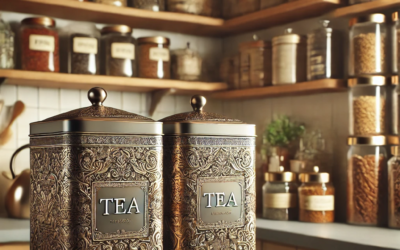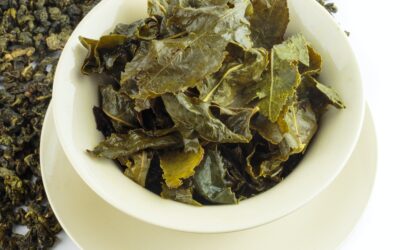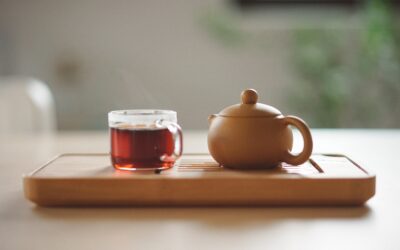For many, tea is a ritual, a moment of calm, a gentle energy boost, or a way to unwind. But for some, that soothing cup can come with an unexpected side effect: stomach discomfort. If you’ve ever sipped your favorite tea only to be met with nausea, bloating, or irritation, you’re not alone.
So, why does tea upset some people’s stomachs, and what can you do about it?
Why Does Tea Sometimes Upset Your Stomach?
- Tannins Can Be Harsh
Tea, especially black and green varieties, contains tannins, a natural compound that give tea its slightly bitter, astringent taste. While tannins have health benefits, they can also increase stomach acid production, leading to irritation, nausea, or an unsettled feeling, particularly when consumed on an empty stomach. - Caffeine Sensitivity
While tea generally has been considered to have less caffeine than coffee, it can still trigger digestive discomfort in sensitive individuals. Caffeine stimulates stomach acid production, which can contribute to acid reflux or irritation, especially if you’re drinking strong tea or multiple cups a day. - Acidic Nature of Some Teas
Certain teas, like fruit-infused blends or strong black teas, have a higher acidity level. This can be problematic for those prone to acid reflux or sensitive stomachs. - Brewing Too Strong
Over-steeping your tea can increase tannin levels, making it more likely to cause stomach discomfort. A stronger brew isn’t always better…..sometimes, it’s harsher on digestion. - Drinking Tea on an Empty Stomach
While some enjoy tea first thing in the morning, an empty stomach can make it harder to tolerate. The combination of caffeine and tannins without food to buffer them can lead to nausea or an unsettled stomach.
How to Reduce the Risk of Tea Upsetting Your Stomach
- Choose Gentler Teas
White tea is a great alternative for those with sensitive stomachs. It has lower tannin and caffeine levels than black or green tea, making it a milder option. Herbal teas like camomile, rooibos, or ginger are also soothing choices. - Drink Tea with Food
Having tea alongside a meal or snack helps buffer the effects of tannins and caffeine, reducing the likelihood of stomach discomfort. Or, one might consider drinking a glass of water first thing in the morning may help prepare your stomach for tea, hydrating your digestive system and reducing the impact of tannins and caffeine - Be Conscious of Your Brewing Time
Steeping your tea for a shorter time (especially black and green teas) can lower tannin concentration and make it easier on your stomach. - Stay Hydrated
If tea is your primary beverage, ensure you’re also drinking enough water. Hydration helps maintain stomach balance and reduces irritation. - Experiment with Herbal Teas
If traditional teas consistently upset your stomach, herbal alternatives like peppermint, ginger, or licorice root can support digestion and reduce bloating.
Although I am not a fan of adding milk or plant based alternatives to tea, research has suggest that adding milk or a splash of plant based alternatives like, oat milk, or almond milk can help neutralize tannins and acidity, making the tea gentler on digestion.
When Tea Can Actually Help Your Digestion
Not all teas cause discomfort, some can actually soothe an upset stomach. Ginger tea, for example, is well known for its digestive benefits, while peppermint tea can help ease bloating and nausea. White tea is another excellent alternative. Unlike black or green tea, white tea undergoes minimal processing, resulting in lower caffeine levels and reduced acidity, making it a gentler option for those with acid reflux or sensitive stomachs. Studies suggest that the polyphenols in white tea can promote the growth of beneficial gut bacteria, supporting digestion and immunity. It also has anti-inflammatory properties, which may help reduce gut inflammation, which is beneficial for conditions like irritable bowel syndrome (IBS), gastritis, and leaky gut syndrome.
However, while white tea is gentler compared to other teas, individuals with ulcers may still be sensitive to caffeine and should consider avoiding it altogether.
The takeaway? If tea has ever left you feeling queasy, don’t give up on it just yet. The right choices such as opting for white or herbal teas, avoiding strong brews on an empty stomach, or adding a milk alternative, can make all the difference.











